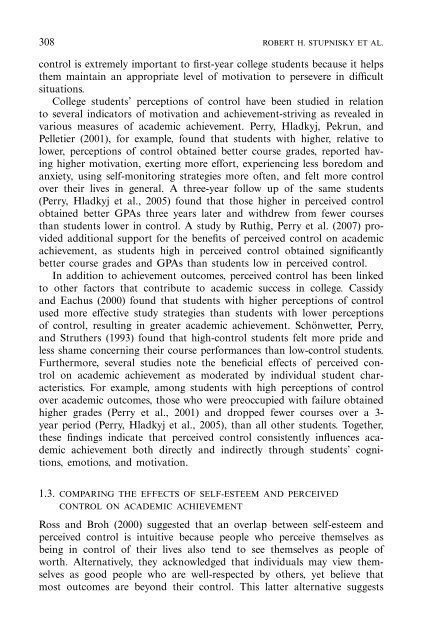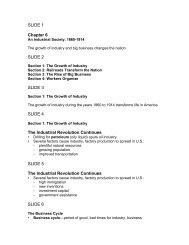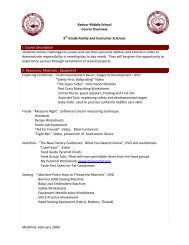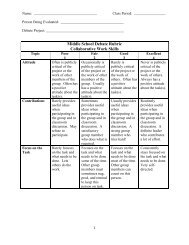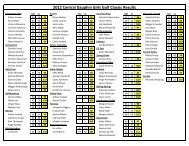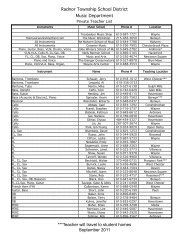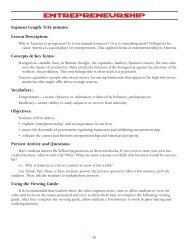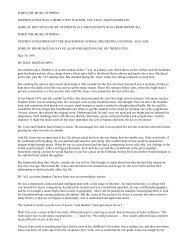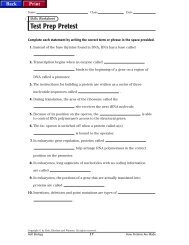Self-Esteem and Student Achievement
Self-Esteem and Student Achievement
Self-Esteem and Student Achievement
You also want an ePaper? Increase the reach of your titles
YUMPU automatically turns print PDFs into web optimized ePapers that Google loves.
308 ROBERT H. STUPNISKY ET AL.control is extremely important to first-year college students because it helpsthem maintain an appropriate level of motivation to persevere in difficultsituations.College students’ perceptions of control have been studied in relationto several indicators of motivation <strong>and</strong> achievement-striving as revealed invarious measures of academic achievement. Perry, Hladkyj, Pekrun, <strong>and</strong>Pelletier (2001), for example, found that students with higher, relative tolower, perceptions of control obtained better course grades, reported havinghigher motivation, exerting more effort, experiencing less boredom <strong>and</strong>anxiety, using self-monitoring strategies more often, <strong>and</strong> felt more controlover their lives in general. A three-year follow up of the same students(Perry, Hladkyj et al., 2005) found that those higher in perceived controlobtained better GPAs three years later <strong>and</strong> withdrew from fewer coursesthan students lower in control. A study by Ruthig, Perry et al. (2007) providedadditional support for the benefits of perceived control on academicachievement, as students high in perceived control obtained significantlybetter course grades <strong>and</strong> GPAs than students low in perceived control.In addition to achievement outcomes, perceived control has been linkedto other factors that contribute to academic success in college. Cassidy<strong>and</strong> Eachus (2000) found that students with higher perceptions of controlused more effective study strategies than students with lower perceptionsof control, resulting in greater academic achievement. Schönwetter, Perry,<strong>and</strong> Struthers (1993) found that high-control students felt more pride <strong>and</strong>less shame concerning their course performances than low-control students.Furthermore, several studies note the beneficial effects of perceived controlon academic achievement as moderated by individual student characteristics.For example, among students with high perceptions of controlover academic outcomes, those who were preoccupied with failure obtainedhigher grades (Perry et al., 2001) <strong>and</strong> dropped fewer courses over a 3-year period (Perry, Hladkyj et al., 2005), than all other students. Together,these findings indicate that perceived control consistently influences academicachievement both directly <strong>and</strong> indirectly through students’ cognitions,emotions, <strong>and</strong> motivation.1.3. COMPARING THE EFFECTS OF SELF-ESTEEM AND PERCEIVEDCONTROL ON ACADEMIC ACHIEVEMENTRoss <strong>and</strong> Broh (2000) suggested that an overlap between self-esteem <strong>and</strong>perceived control is intuitive because people who perceive themselves asbeing in control of their lives also tend to see themselves as people ofworth. Alternatively, they acknowledged that individuals may view themselvesas good people who are well-respected by others, yet believe thatmost outcomes are beyond their control. This latter alternative suggests


